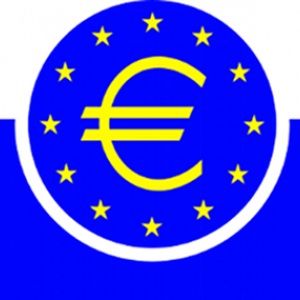Draghi effect subsiding leaves pressure building on ECB head

By Bloomberg
Mario Draghi's stimulus pledge didn't convince investors for long.
Exactly one month since the European Central Bank president told his global peers he was ready to act to avert deflation in the euro area, bets on consumer prices have collapsed. Even after surprise interest-rate cuts and an asset-purchase program, inflation expectations fell to an almost four-year low and business surveys this week may show a faltering economy.
Investors are speculating that Draghi, who speaks in Brussels today, is running out of options to revive the stalled recovery as confidence wanes and governments drag their feet on structural reforms. His appearance at the European Parliament could offer a glimpse into his thinking on current stimulus, and whether he'll step up to large-scale quantitative easing.
"The recent drop in inflation expectations is a direct credibility challenge to the ECB which Draghi will need to address," said Lena Komileva, chief economist at G Plus Economics Ltd. in London. "The markets are starting to price in a euro-area economic malaise and the stimulus the ECB has provided may prove inadequate."
When Draghi spoke at a symposium for central bankers in Jackson Hole, Wyoming, on Aug. 22, he said inflation expectations were declining across "all horizons" and that policy makers "will use all available instruments" to safeguard price stability.
Price Gauge
The five-year, five-year swap rate, which he said officials use to gauge medium-term expectations, rose to a three-week high by Sept. 4, when the ECB cut interest rates and said it'll start an asset-purchase program. By the end of last week, the measure was at the lowest since October 2010.
The ECB president will deliver his quarterly testimony to European lawmakers and answer questions starting at 3 p.m. in Brussels today. He'll also give a speech and press conference at an event in Vilnius on Sept. 25.
Data this week is forecast to point to a slowdown in manufacturing and services in the region. Purchasing managers' indexes will be published by Markit Economics tomorrow, and Germany's Ifo gauge of business confidence on Sept. 24 is predicted to fall to the lowest in more than a year. Figures last week showed that euro-area inflation held at 0.4 percent in August, the weakest pace in almost five years.
G-20 Meeting
ECB policy makers at a Group of 20 meeting of finance ministers and central bankers in Cairns, Australia, over the weekend said they'll take time to assess the impact of existing stimulus measures before deciding whether to act again.
"We'll see if this is enough," Executive Board member Benoit Coeure told reporters. "In case it would not be enough, the Governing Council is ready to do more. But it's way too early to tell."
Governing Council member Ignazio Visco of Italy said that while inflation expectations must "be back where they were," this doesn't mean there will be a next step. Germany's Jens Weidmann said "monetary policy should not be overburdened" and called on governments to push ahead with structural reforms.
Draghi has also said that while the ECB could embark on further measures such as broad-based government-bond purchases, there's only so much it can achieve alone. He's pushed governments to use "flexibility" in European Union fiscal rules, and to avoid backsliding on structural reforms to improve their competitiveness.
Political Tension
"No matter what the monetary and even fiscal stimulus has been decided, we won't see much growth coming from these measures only if there are no serious structural reforms," he told reporters in Milan on Sept. 12, reiterating comments he made at Jackson Hole.
The ECB's stimulus is also being deployed against the backdrop of tension with Russia that threatens trade flows. The EU and U.S. agreed this month to stiffen sanctions against Russia, citing its support for separatists in Ukraine.
"The biggest problem for the euro-zone economy at the moment is geopolitical uncertainty and there is not much the ECB can do about that," said Holger Schmieding, chief economist at Berenberg Bank in London. "There is very little reason to expect any noticeable pick-up in inflation over the next year."
Draghi said on Sept. 4 that he intends to steer the ECB's balance sheet back to the levels seen at the start of 2012, signaling that he wants to add as much as 1 trillion euros ($1.3 trillion) in assets.
Low Demand
The vehicles for doing so include targeted four-year funding for banks linked to their real-economy lending, which was announced in June, and direct purchases of asset-backed securities and covered bonds, which will be outlined in more detail next month.
That plan got off to a slow start last week when banks asked for just 83 billion euros in targeted loans, compared with estimates from 100 billion euros to 300 billion euros in a Bloomberg survey of economists. Government-bond prices rose in southern Europe as investors bet that the probability of QE increased.
"It is true that the package of measures they have fielded in June and September doesn't seem to have had a particularly powerful effect," said Annamaria Grimaldi, an economist at Intesa Sanpaolo SpA in Milan. "It's almost as if the market was not particularly satisfied, and is testing how far the ECB is willing to go."
